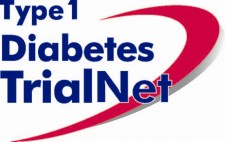Study Finds Low-Dose Anti-Thymocyte Globulin (ATG) Preserves Insulin Production in People Newly Diagnosed With Type 1 Diabetes

ORLANDO, Fla., June 25, 2018 (Newswire.com) - Findings from a new TrialNet research study show low-dose thymoglobulin (ATG) slows insulin loss in people newly diagnosed with type 1 diabetes. The findings were presented today at the 2018 American Diabetes Association’s Scientific Sessions in Orlando, Florida.
Study Chair and TrialNet Investigator at University of Florida Michael Haller, M.D., said, “We are excited to share these important findings with all those affected by type 1 diabetes and are eager to conduct studies designed to test ATG even earlier in the disease process, prior to symptoms and clinical diagnosis.”
We are excited to share these important findings with all those affected by type 1 diabetes and are eager to conduct studies designed to test ATG even earlier in the disease process, prior to symptoms and clinical diagnosis.
Michael Haller, M.D., Study Chair and TrialNet Investigator at University of Florida
ATG is approved by the FDA to prevent or treat acute rejection of a transplanted organ. A previous pilot study tested ATG in combination with pegylated granulocyte colony stimulating factor (GCSF), an FDA-approved drug used to increase white blood cell counts in people receiving chemotherapy. The pilot study suggested that ATG combined with GCSF preserved insulin production for more than one year after treatment in people who had type 1 diabetes for four months to two years.
TrialNet researchers wanted to know if ATG alone or in combination with GCSF could slow insulin loss when started earlier. To find out, TrialNet enrolled 89 people between age 12 and 45 diagnosed with type 1 diabetes in the past 100 days. Some people received ATG, some received ATG combined with GCSF and others received a placebo.
One year after the start of treatment, researchers concluded:
- Low-dose ATG preserved beta cell function and improved insulin production.
- Low-dose ATG combined with GCSF did not enhance beta cell preservation.
- Hemoglobin A1c levels were significantly lower (indicating better long-term blood sugar control) in people treated with low-dose ATG alone and in people treated with low-dose ATG combined with GCSF, as compared to placebo.
All participants will complete the study by August 2018. Final findings will be reported in 2019.
TrialNet Chair Carla Greenbaum, M.D., Director of the Diabetes Research Program and Clinical Research Center at Benaroya Research Institute in Seattle, said, “Based on these promising findings, TrialNet is considering other studies to determine whether low-dose ATG alone or in combination with other agents may be more effective even earlier in disease progression. Though more research is needed, we’re hopeful this could be a much-needed avenue to prevent disease progression for people with new type 1 diabetes.”
About TrialNet
TrialNet (NCT00097292) is funded by the National Institutes of Health (NIH), primarily through the Special Statutory Funding Program for Type 1 Diabetes. Additional support comes from JDRF, American Diabetes Association and Helmsley Charitable Trust. The largest clinical trial network ever assembled to change the course of type 1 diabetes, TrialNet offers risk screening and innovative clinical studies testing ways to maintain insulin production before and after diagnosis.
TrialNet screening offers a way to find type 1 diabetes in its earliest stages, years before symptoms appear. More than 200 locations worldwide offer free screening to relatives of people with type 1 diabetes. There’s also the option to get a test kit in the mail to complete screening at home or take to a local lab. For more information, visit www.trialnet.org.
Media Contact:
Annie Shultz, TrialNet Hub at Benaroya Research Institute, ashultz@benaroyaresearch.org
Phone on June 25: 253-606-2842; all other dates: 206-341-8923
Source: Type 1 Diabetes TrialNet